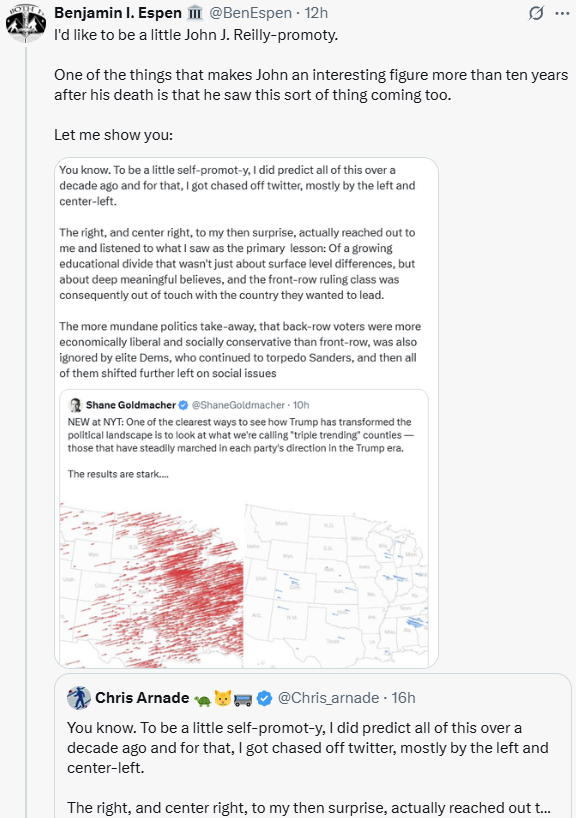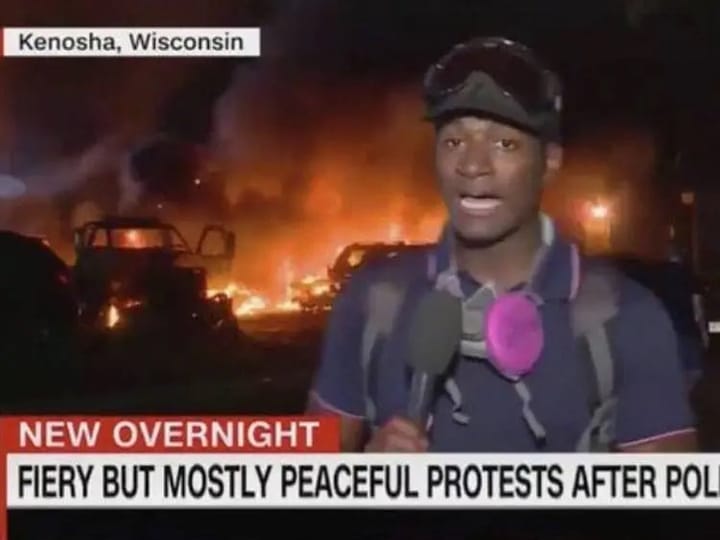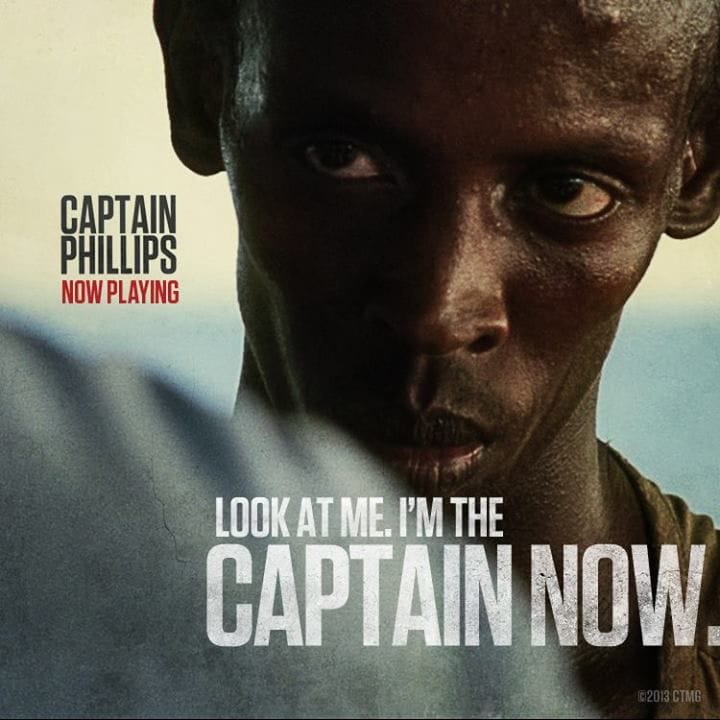The Long View 2006-01-01: Notes on 2006
John makes some predictions for 2006 here, which makes it easy to assess his track record:
- John completely missed Barack Obama's rising star in 2006. President Obama's 2004 keynote address didn't impress John, but it sure did wonders for everyone else.
- This isn't actually for 2006, but the demographic projections of the time, and the Spengler's Future model, predicted world population would peak in the 3rd quarter of the 21st century. The UN has revised it's population estimates to keep growing for a while longer, because the demographic transition hasn't gone through the formality of happening in Africa

- I don't recall whether anyone noted the 100th anniversary of Theodore Roosevelt's letter to the GPO on spelling. I'm guessing the answer is no.
- Iraq War veterans weren't hugely in demand as political candidates. Weirdly, in 2017, a lot of power in President Trump's cabinet has gone to generals from that war, but it sure wasn't true in 2006.
- Iran has ended up dominating Iraq after the Iraq War. John did not guess correctly that some deal about Iranian nuclear programs would be made: he was probably unduly influenced by fools like Michael Ledeen.
- A number of movies I really liked came out in 2006. Cars. Idiocracy. 300. The Devil Wears Prada.
- The end of 2005/beginning of 2006 wasn't a good year for John's track record. Previous years weren't quite so bad.
Notes on 2006
I strongly believe in prescience in all its forms. I also believe that it's pretty useless: even if you are right about some future event, you will almost certainly be wrong about what it will mean at the time it happens or how important it will be. With that in mind, let us proceed to a short list of observations and predictions for the coming year:
Yes, the presidential election of 2006 does start this year, in the sense that by year's end we will know who the contenders for the party primaries will be. The names that most frequently come up are the US Senators Hillary Clinton (Democrat) and John McCain (Republican); and look: there are polls of the "whom would you vote for today" variety. McCain beats every Democratic opponent if he is the Republican candidate. More interesting, perhaps, is what happens if Governor Jeb Bush of Florida, the current president's brother, is the Republican candidate, and McCain runs as an independent:
Democrats:
Bush-00 Clinton-64 McCain-28 Unsure-8
Independents:
Bush-07 Clinton-34 McCain-47 Unsure-12
Republicans:
Bush-40 Clinton-08 McCain-49 Unsure-03
Polls at this point are worse than useless. Jeb Bush is almost certainly not going to run, for one thing; maybe none of these people will be on the ballot in 2008. Nonetheless, I mention these numbers now because the hypothesis of an independent bid by Senator McCain is closely connected to how poorly the Republicans do in the congressional election of 2006. If they lose both Houses of Congress, then the business & evangelical coalition that has controlled the party for the past two election cycles will be in such disarray that McCain could be nominated almost by default. On the other hand, if the Republicans limit their losses, then the establishment will be able to turn aside his candidacy one last time. I suspect that the Republicans will lose control of the House of Representatives; that will not be enough to cause panic.
In that case, an independent run by McCain is a real possibility. It might segue out of another lost bid by McCain for the Republican nomination, in a way closely parallel to Theodore Roosevelt's third-party run on the Progressive ticket in 1912.
Historically, third-party candidates have been spoilers: H. Ross Perot, for instance, was probably why the first President Bush was not reelected. McCain, in contrast, might actually be elected. After the Clinton impeachment and the Electoral College decision in 2000, anything seems possible.
* * *
Speaking of Theodore Roosevelt, 2006 is the 100th anniversary of his famous Executive Order that tried to institute a minor reform of English spelling, or at least of the spelling used by the Government Printing Office. I am informed by knowledgeable members of the Spelling Reform Hierarchy (hey, Joe!) that we can expect the press to take notice of this anniversary, particularly because it falls in August, when newspapers are not overburdened with pressing news. You read it first here.
* * *
There will be superlative natural disasters in 2006, of course, perhaps even some big enough to knock spelling reform off the front pages. However, as you may have noticed, disasters seem to become more costly in lives and money every year. This is not because the atmosphere is behaving in an unprecedented fashion but because there are more people and more infrastructure to injure. The absolute amount of damage goes up; the relative social cost goes down. We can expect this pattern to continue until at least the last quarter of this century, when the population of the world will begin its centuries-long decline
* * *
The parties will bid for veterans of the Iraq War as candidates, something that is already happening in a small way. That will be the political significance of the military for the near future: not as a new, mass voting block, but as a source (one of several, of course) of the future political class. There should be just enough such candidates this year to attract passing notice In future elections, we can expect the trend to become prominent.
The Republicans will be better positioned, initially, to benefit from the trend. However, the Democratic Party will, in the long run, find its policy positions changing in order to accommodate the new source of electable candidates.
* * *
Hostility to Iran will become the first settled foreign policy of the new Iraqi government. This will be because of the conflict between the centers of Shia learning in Iran and Iraq. The model here is the enmity that developed between the Soviet Union and China during the 1950s, and even sooner between the Soviet Union and Yugoslavia. The latter relationship made Yugoslavia, a Communist country, a de facto American ally through most of the Cold War.
The really interesting question about Iran is whether it will be forcibly relieved of its nuclear-weapons potential. No one is talking about invading Iran, but the sites in question could not simply be bombed. This is difficult at all levels, not least the legal one: Baathist Iraq in 2003 was in violation of the armistice that had saved the regime in 1991; there is no comparable rationale for action against Iran. So, if the attack happens, someone must devise an incomparable rationale.
* * *
There will be no good movies in 2006. Just look here at the upcoming releases. I look forward to Mel Gibson's Apocalypto, about ancient Mezoamerica, but the attraction is Science, not Art. There is small hope for the film version of The Da Vinci Code, I suspect. The story is no stupider than that of any other find-the-object thriller. However, from what I gather, the book is not easily filmable. Moreover, the protagonists will be doing things that outrage their audience's religious sensibilities, which means the screenwriters must have found it difficult to make those characters sympathetic.
Among the sequels, only Sin City 2 raises high hopes. There will be many remakes. The Incredible Shrinking Man will be redone as a Wayans comedy. That makes a certain amount of sense, since special-effects technology have improved greatly since the 1950s original. (As a comedy, though, it must match Lily Tomlin's Incredible Shrinking Woman.) On the other hand, I see that someone is remaking The Omen. This is probably a mistake: the original worked because the director had the sense to be sparing of special effects. The decapitation of David Warren, discerning critics agree, was tastefully done, and almost the only gore in the film.
I see there is going to be another Indiana Jones movie, but it will probably not premier until next year. Alas.
Copyright © 2006 by John J. Reilly



Comments ()